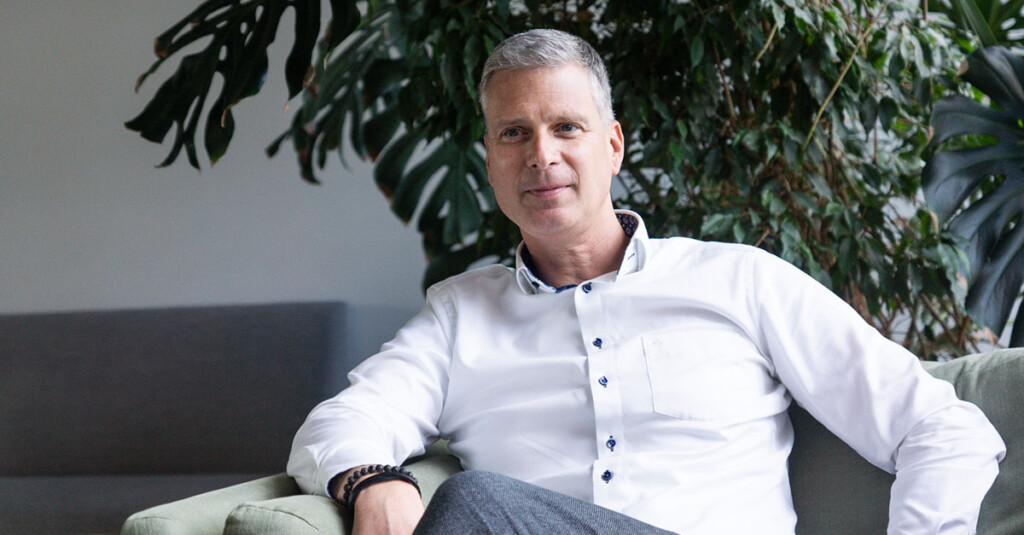Skip to content
As Vice President, Thomas Bickert is responsible for the SRM & Portal Solutions division at SupplyOn with over 35 employees. His department designs and develops integrated solutions for successful supplier relationship management - supplier management, source-to-contract and supplier quality management. In the context of the SupplyOn Health Weeks, we asked him for personal insights and tips on health and work-life integration. Enjoy the reading! How important s health to you and how do you personally integrate time for your own well-being?Health is an important issue for me, particularly because I expect to keep my job for longer. I want to stay fit for a long time. Not only for me personally, but also for my family. However, I am not someone who goes to extremes in terms of sports and nutrition. I try to eat balanced and do sports on a regular basis. But I am not a top athlete and do not exercise daily. I try to maintain a healthy balance.How has your own engagement with health evolved during your career and what experiences have strengthened your focus on this important issue?I realized over time that I can't just perform. At some point, you must pay attention to signals from your body and take them seriously if you don't want to struggle with any ailments on a permanent basis.In my experience, every person, every body, has certain stress valves (e.g. back problems, knee pain, infections). When things get too stressful, they react. Probably everyone knows these points for themselves. I know mine. This is where you need to actively deal with them and decide. Do I want this permanently? If not, you need to adjust your behavior.A few years ago, these valve points were the determining factor for me to rethink. So, I started asking myself questions: What am I changing? What am I actively modifying? Where do I set limits?I implemented my personal answers, and I'm now living a good life with them.Certainly, you often have a busy workday and deal with a high workload. How do you manage to switch off from your daily work routine and maintain a healthy work-life balance?Time and self-management is essential for me. This personally helps me a lot, and I always try to optimize and develop it for myself. This begins with perception. I start to focus on the contexts in which I'm moving. Am I currently in the context of work? Or in the context of family, for example?Each context has specific rules for me. In the context of work, I focus 100% on my work and exclude my private life. This also means, that in my private life, I focus completely on my family life. For each context, it is very important for me being able to rely on managing things.For me, an important learning is to recognize that I can't work through everything. Because that will never happen. At some point I said: There will always be work for the next day and I will never get my inbox down to zero.In this process, I believe it is important to develop a method or approach that offers a feeling of confidence and to find the right balance between personal ability and the expectations of the company or team. This self-organization leads to satisfaction, self-affirmation and prevents negative stress.How do you support your employees in improving their own work-life balance and taking care of their personal well-being?I trust in the self-responsibility of each individual and in the fact that my employees will take measures and give me signals if there is an imbalance. Taking this into account, I see it as my responsibility to recognize and respect the limits of my employees and not to influence them negatively. For example, if employees tell me that they pursue a hobby at certain times during flexible working hours and cannot be reached at that time, I respect that.It is not part of SupplyOn's culture to expect people to be available outside of regular working hours. We don’t have a - I write an e-mail at 9 p.m. in the evening and expect a response by 7 a.m. the next morning.I communicate this actively. It is even more important to demonstrate this in your own behavior.What advice would you give (younger, less experienced) employees about setting boundaries and reaching that balance you named?It is very important that you already have the understanding that this is a process. A highly individual one. No one can dictate that. In my opinion, there is no pattern, and a healthy balance will not appear by accident. Everyone needs to figure that out for themselves: Some people need more to be satisfied, others less.One thing that helped me personally was confidence. Trust in my own performance. Trust in my own assessment of the fact what I'm doing is good. This confidence is also generated through feedback.I would recommend getting feedback proactively by the organization. Is this how it works? Is this what is expected of me? Do they expect more? And not just to reflect on this with your manager, but also with colleagues or customers.Be confident to actively ask for feedback, managing your own expectations and building trust as a result. Recognize: What I'm accomplishing is enough. Or recognizing that not so much is expected of you, but you are putting pressure on yourself and stressing yourself out.Colleagues may also be surprised of how much you can achieve and perform during your available time, and you realize being able to slow down. It's worth making that adjustment and investing in your own self-confidence! Thank you, Thomas, for the great insights and tips! Are you interested in an employer who cares about your health? Learn more about our benefits and find out about our job offers.
